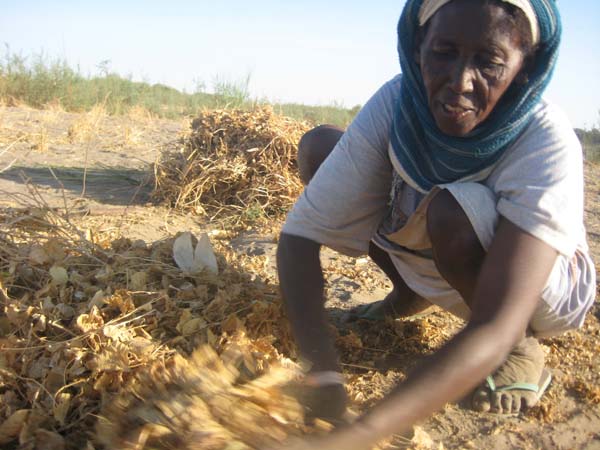I arrived in the dusty Sudanese capital Khartoum three weeks ago – after more than 30 hours of travel, two nights of airports and planes and way too many screaming babies.
Khartoum is not what I expected – much more alive and developed. The sun is as hot as everyone warned, but it is more than manageable with enough water and occasional escape to fanned or air-conditioned areas. There are many paved roads, but still enough sand to get in your eyes on a windy day.
People are kind and the city is really safe – despite everyone's perceptions of Sudan as a violent place. As a young woman, I walk around alone at night and no one bothers me. Speaking Arabic – albeit with an Egyptian accent – gets me quite far here.
By far, the most destabilizing thing about being here is the apparent disconnect between life in Khartoum and what is happening in Darfur. People just live their lives as usual. No one even seems to talk about it, notice it, care that it exists. In fact, some deny that it does – at least to the extent of catastrophe that is portrayed in the Western media.
When I first arrived, I had dinner with some Sudanese men who said the "small problem" in Darfur has totally been exaggerated, that countries have their own interests in making a big deal out of Darfur, and that the UN is only setting up camp there because it wants to keep getting money from donors.
But it's hard to know what to make of these views. Is it government propaganda, are they simply apathetic, or does the international community truly have it wrong? I talked to one wom
an from Darfur who said the war had never come to her village and she had no problem with the government. Is she saying that out of fear - apparently, the government's secret police are everywhere (posing as taxi drivers, NGO workers, etc) - or is Darfur truly not as bad as we thought?
The other issue, of course, that adds to the overwhelming complexity of trying to understand Sudan is figuring out which tribes are in alliance, who exactly the janjaweed are, what the difference between black and Arab is, and what this is all about. People who have been here for months and years are still struggling with these questions.
Still, there are plenty of interesting opinions and within my first week in Sudan, I spoke to many people with something to say – a former governor of West Darfur who was extremely honest about the government's "failure"; a southerner with the Sudan People's Liberation Movement (which was at war with the government for two decades) now high up in the unity government who, again, spoke surprisingly frankly about the unwillingness of some members of the ruling National Congress Party to work with their new partners from the south; an academic who blamed the Save Darfur Coalition for much of the mismanagement (and resulting death) of Darfur because of its oversimplified message to Western politicians; and a humanitarian worker who was so discouraged by the inability to make an impact that he quit and became a journalist!
I am here to report about the people of northern Sudan, who have been largely forgotten amidst all of Sudan's other problems. More to come.









